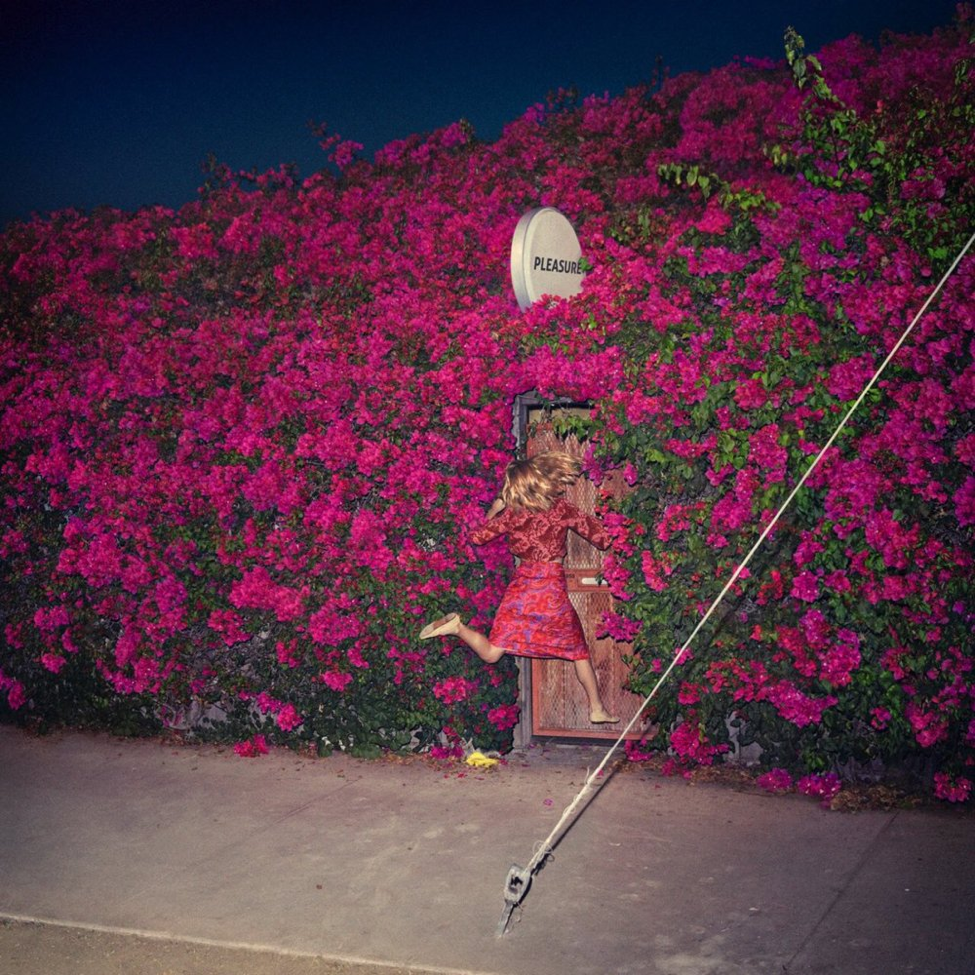PLEASURE by Feist

Genre: Indie Folk
Favorite Tracks: “Pleasure,” “I Wish I Didn’t Miss You,” “Any Party,” “A Man Is Not His Song,” “Century,” “I’m Not Running Away”
Love as a waterfall, courage as a trade wind, clarity as a sunrise, revelation as a heatwave—Feist feels it all. On the spectrum of human emotion, each feeling seems to expand beyond the corporeal and settle into the shapes of rivers and volcanoes. When your senses reach past the moon, what is the limit preceding a violent detonation? The only place to go is inward. On PLEASURE, Feist challenges the immovability of her macrocosmic feelings, confronting her emotions with a powerfully mature, experiential perspective.
Although it’s been a six-year wait since 2011’s METALS, Leslie Feist (now 41) has been in music since she was in her teens. Only slightly evolving from the bossa nova- and jazz-tinged LET IT DIE, to the indie pop sensibilities of THE REMINDER, there has always been a youthful innocence and endearing optimism about Feist’s music, even amidst the whaling heaviness that makes METALS stand out in her repertoire sonically and thematically. In a way, PLEASURE is a move back to the basics, trading in the austere dynamism of brass and strings for the bare bones of acoustic staples. The simplicity of PLEASURE’s sparse composition makes the occasional rattle of a tambourine or swell of a cymbal all the more affective. Everything has its place; any additional ornamentation is not there without its own narrative value.
Because PLEASURE is so stripped down, an introspective loneliness (or is it just mere solitude?) is unveiled both in theme and production. With even the best headphones in, you can tell that most of it was recorded live; a tape hisses in the background as if to transport you into the isolation of a creaky cabin in the French countryside. Here, she is alone with her thoughts, and the discussion she has with herself simply begins with the album’s namesake. Cautiously, the musical anticipation of “Pleasure” begins with the mystery of this primal conquest—what is this feeling, and does it not also beget pain? But the intensity concludes with an ecstatically bluesy eruption of autonomy: “It’s my pleasure, / That’s what we’re here for!” Understanding pleasure in this light suddenly gives Feist a Sartrean grasp on what once used to seem bigger than herself, as big as mountains.
It seems as if this paradigm shift both condemns and liberates. At once, she must reconcile pain and pleasure only at the hands of her own mindset. Nevertheless, Feist palpably wrestles with this wisdom as she reflects, often struggling to placate the facts of her memories and the feelings she has towards them. The second track demonstrates this emotional tug-of-war, bitterly croaking, “I’m also in the mind to just let it go,” but shortly thereafter conceding, “I wish I didn’t miss you.” These internal conflicts can often feel like a battle of extremes, which Feist details in the following track “Get Not High, Get Not Low,” with a chorus that swings like a pendulum atop drum claps and then putters off into sleepy guitar-tickling.
Most of the songs on PLEASURE are strangely calm, and any burst of energy—positive or negative—is not without the preface of a slow burn. But such is the curious charm of Feist—she needs not bells and whistles, nor to explode into dramatic vocalizations and elaborate riffing. While songs like the soporific “Lost Dreams,” the THE REMINDER-esque ballad “Baby Be Simple,” or the gentle doo-wop of “Young Up” don’t quite chart new territory for the singer-songwriter, PLEASURE reels you in with irrefutable wisdom, honesty, and intimacy. The times when her energy can no longer be contained, such as in the spiraling wails of “Century” or the stubborn, cowboyish refrain of “I’m Not Running Away,” suddenly become that much more meaningful amidst their otherwise pensive bookends.
The outbursts, however tight in sound or structure, remind us in contrast that coping and making peace with the past cannot always be concentrated to a simmer. They are a necessary release, however brief; being quietly alone in your own head is what’s more agonizing in the long run. One particularly effervescent moment on the record that flips this pattern, though, is the drunkenly boisterous rock ‘n’ roll track “Any Party.” Opening with a gritty guitar riff á la Eric Clapton or The Yardbirds, Feist crows across a noisy backyard, full of gossip and string lights and red cups. Each verse increasingly belligerent, the song completes with a band of drunks singing along with her like the closing hour at a pub. But in between the whooping and clamoring, a gentler voice takes the chorus in puppy-eyed devotion: “You know I’d leave any party for you, / ‘Cause no party’s so sweet as a party of two.”
The track finally dissipates into background chatter and the sound of footsteps intent on meeting a sweetheart, but the intoxicated fantasy wears into disappointment with another album highlight, the start of PLEASURE’s falling action: “A Man Is Not His Song.” Poised and stoic, Feist begins her lament with a simple guitar progression and understated drum beat, severely hushed in comparison to its predecessor; the only thing reminding you there’s a world outside of her sober quietude is the muted chirp of a cricket. “A man is not his song, / A song is a promise / If a man is just his song, / Then the song is beyond us”—the realization of broken trust surrenders still to hypnotic fidelity—“But I wanna sing along / If he’s singing it for me.” Layering into a wall of voices and echoes, she reiterates that there’s more to a relationship than just the skeleton of commitment: “More than a melody’s needed.” In parallel with her thesis: nothing is ever quite what it seems.
Reigning in the vastness of her emotions with a humble meditation one can only learn through time and inking up diary pages, PLEASURE is Feist’s wisest work to date. By refocusing on the micro, she grapples with those once-astronomical feelings and dissects them into more tangible, hominin experiences of life. She’s no longer swallowed by the Pale Blue Dot, nor shackled to the expansiveness of her emotions. “The end’s not coming, / Fear not, / Y’young punk,” she urges her younger self in the closing track. PLEASURE confirms that the glass can be half full, or half empty, or the wrong size. But for those of us still learning that, at least we’ve got Feist’s intuition to tell us so.
Verdict: Recommend



